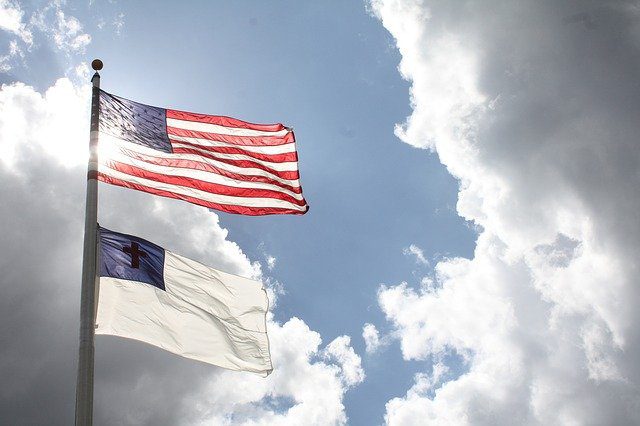
We keep hearing that Christianity has been sullied by politics. That complaint usually has reference to evangelicals and other conservative Christians supporting Donald Trump, forming the “Christian Right,” and otherwise selling out their spiritual purity in their pursuit of power.
Such criticisms can have a point. We shouldn’t politicize the Gospel or confuse the kingdoms of this world with the Kingdom of Heaven. But new research has found that evangelicals are not the worst offenders. Rather, progressive Christians are far more political in their religion than conservatives are.
That’s the finding of George Yancey, professor of sociology at Baylor (and an African-American). His research is being published in his forthcoming book with with Ashlee Quosigk,
Yancey tells about some of his research findings in the article Who’s More Political: Progressive or Conservative Christians? Here are some highlights:
One of our findings is that progressive Christians prioritize political values more than conservative Christians do. Political conformity is more important for progressive Christians than for conservative Christians. . . .
Some progressive Christians oppose abortion, but even they fail to challenge political progressives to the extent they challenge political conservatives on other political issues. . . .
Conservative Christians are more likely to create social out-groups based on theological than political differences. In other words, they’re more accepting of political progressives than of non-Christians. They’re also quite willing [to] see different types of Christians as friends. Our qualitative work indicted that conservative Christians often see progressive Christians as brothers and sisters with slightly different beliefs.
The reverse is true for progressive Christians. They’re more likely to create social out-groups based on political differences. In other words, they’re more accepting of non-Christian groups than they are of conservative Christians.
Yancey also took the interesting step of examining progressive and conservative Christians who hold different views than the majority of their co-religionists. Specifically, he looked at progressives who are pro-life and conservatives who are pro-immigration. “Those two groups are at odds with their potential political allies,” he observes. But pro-life progressive Christians generally stop short of calling for laws to restrict abortion or opposing their pro-abortion political allies. Whereas pro-immigration conservative Christians have no hesitation in calling out their fellow-conservatives who hold what they consider to be a non-Biblical view of the issue. Yancey concludes, “Conservative Christians have a degree of freedom to confront political conservatives that progressive Christians don’t in challenging political progressives.”
Read the entire article–and the book when it comes out–for reasons for these differences and their theological dimension.
All of this accounts for why evangelicals and other conservative Christians are agonizing over whether their faith has become too political, and why progressive Christians, as far as I can tell, are not.
Image by SEspider from Pixabay













